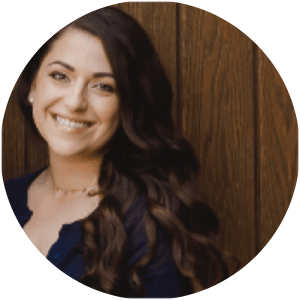What is halal investing?
Halal simply means “permissible,” so hllal investing means “permissible investing.” Some observant Muslims prefer to invest in a way that does not contradict their ethical or religious values, as laid out in Sharia Law.
Halal investing ethics include:
- No receiving interest: You cannot receive interest from fixed-income investments and you also can’t invest in a business whose main profit comes from interest, such as a bank.
- No highly speculative stocks: This rules out buying stocks that are highly leveraged, day trading, short-selling, options, futures and other complex and risky investment techniques that could be considered gambling.
- Sharing in profit and loss: Investors cannot simply lend money to a business (like with bonds); they must also be part-owners and exposed to business risks (as is the case with stocks).
- Cannot profit off activities forbidden by Sharia Law: This includes companies whose core business include alcohol, tobacco, gambling, pork, pornography and weapons.
The principles are subject to nuanced interpretation. Not all Islamic scholars agree on the specifics, making it difficult to construct a DIY halal portfolio. Instead, many Muslims rely on large, independent organizations advised by Islamic scholars who review companies and investments to ensure they are in line with Sharia.
The pros and cons of halal investing
Pros
- Can tilt a portfolio in favour of growth, which is good for young, buy-and-hold investors
- Naturally avoids high risk investments
- Plenty of blue-chip companies to choose from
- Socially responsible investing
- More options every year
Cons
- Difficult to find good fixed-income investments
- Hard to invest in real estate
- Investors may simply avoid investing and keep their funds in cash
- Some of the best blue-chip companies on the TSX are heavily interest-based so investors must depend more on American stock exchanges
- Not environmentally conscious (halal permits investing in fossil fuel companies, for example)
Why halal investing isn’t the easiest in Canada
The difficulty is that these restrictions eliminate so many common Canadian investments. The following would be considered haram, or “forbidden” to those who seek to be Sharia-compliant:
- GICs
- Bonds
- Options and futures
- Preferred shares
- Big Five bank stocks
- Mortgage funds
- Cannabis stocks
- Stocks on the TSX VentureExchange
As you can see, both the very low-risk investments and the highest-risk investments are not eligible for consideration.
Is halal investing a risky business?
Due to Sharia-compliance, most halal investors are over-dependent on equities; however, the equities that meet halal requirements are, quite often with companies with relatively low levels of low dependence on debt and debt instruments. As a result, many mainstream, publicly-traded companies are halal compliant. (Even if non-Sharia compliant investors were to use more advanced investing strategies, such as option-trading, this wouldn't omit the firm from passing Sharia-compliant standards.)
As it turns out, halal investing's over-dependence on equities does not translate into more risk. In fact, recent studies show that ultra-conservative investors who avoid investing in equities have significantly more risk, when it comes to investing returns and diversification. That's because equities are an exceptional hedge against inflation — the primary reason for a reduction in purchasing power (how a dollar buys you less, over time).
The standard advice to diversify your investment portfolio also applies to Sharia-compliant investors. Given the reliance on stocks, halal investors should pay attention to diversification within asset classes as well as across sectors. In plain speak that means holding stocks for different companies within various industries and to pay attention to your portfolio's geographical split.
It also means that halal investing suits both new investors and seasoned traders, as well as aggressive or conservative investors.
What happens when a halal investor approaches retirement?
In general, an investor will start to rebalance their investment portfolio as they near retirement — going heavier on fixed-income products, such bonds and guaranteed investment certificates (GICs). Halal investors cannot use these products; however, they can use allowable fixed income products, like Sukuk bonds or real estate partnerships. Alternatively, the investor may choose to focus on dividend paying stocks.
Sukuk investments: Like bonds, but halal
For more conservative investors there is always the option to invest in a Sukuk – essentially an Islamic bond. Similar to bonds, they reach maturity, are rated by major credit agencies, and payout regular income. Unlike bonds, however, the investor is not lending money and receiving interest income. Instead, the investor is purchasing a part-ownership in a project and receiving a distribution from the profit. They’re popular in Asia and the Middle East but are harder to find in Canada. You’d have to see a specialized financial planner at a bank or an investment firm to purchase Sukuk investments. Another option is buying a Sukuk exchange-traded fund (ETF) like the SPSK Dow Jones Global Sukuk ETF (NASDAQ:SPSK). Since it isn't available through the Toronto Stock Exchange, you'll need to account for currency fluctuations, currency exchange costs and withholding tax, just like any other USD ETF.
Where to find Canadian halal investments
Despite the restrictions, there are still plenty of options to start investing in funds, stocks, exchange-traded funds (ETFs) and other products that align with halal and Sharia Law.
Wealthsimple halal investing fund
Wealthsimple introduced a simple and low-cost way for any halal investor to grow their money. This is probably the most exciting product to hit the market in decades for halal investors. It cuts down barriers, enabling anyone to purchase a diversified portfolio of stocks without having to transfer money into USD and without having to do any research themselves. You can even hold the investment inside a TFSA or a registered retirement savings plan (RRSP).
Unlike other Wealthsimple automated portfolios, there are no ETFs – just 50 global stocks. All companies are screened by a third-party committee of Sharia scholars to ensure they are compliant.
Wealthsimple charges a fee of 0.5% for the first $100,00 invested and 0.4% for over $100,000.
Stock-picking compliant companies
Halal investors also have the option of simply opening a brokerage account and picking stocks themselves. The difficulty is they will have to screen stocks according to the following rules:
- No more than 5% of the company’s revenue can come from haram sources
- Must have less than 33% total debt compared to their market capitalization in the last year
- Must have more than 45% accounts receivable as compared to their total assets in the last year
One way to get around doing all this research is to replicate the Wealthsimple halal portfolio. Another option is to replicate the stocks included in the Dow Jones Islamic Market Titans 100 Index (TSX:DJI100X). This index includes halal compliant stocks, including household names like:
- Canadian National Railway (TSX:CNR)
- BP (NYSE:BP)
- Intel (TSX:INTC.NE)
- Johnson & Johnson (NYSE:JNJ)
- Pfizer (NYSE:PFE)
- Exxon Mobil (NYSE:XOM)
- Suncor (TSX:SU)
- Apple (NASDAQ:AAPL)
- Microsoft (NASDAQ:MSFT)
- Google (TSX:GOOG.NE)
- Facebook (NYSE:META)
- Nike (NYSE:NKE)
Halal ETFs or mutual funds
Investors can also purchase a halal ETF or mutual funds and hold it in their RRSP or TFSA. Most mutual funds come with high fees in Canada, which can really eat into your returns. One of the most popular halal mutual funds is the Global Iman Fund (TSX:IMANX). Unfortunately, it has an excessively high management fee of 2.80% – especially when it just uses the Dow Jones Islamic Market Titans 100 Index (INDEXDJX:IMXL) as a benchmark. To save on fees you can easily replicate this mutual fund by purchasing the top holdings in your online, discount brokerage account. Use the Money guide to find a trading platform that suits your goals and budget.
To save on fees with less work you can also buy a halal ETF. A popular one is the S&P 500 Sharia Industry Exclusions ETF (INDEXSP:SPSIEUP) with a management expense ratio (MER) of 0.45%. This invests in all the permissible companies included in the S&P 500.
Purchase precious metals
Another lawful investment is gold or silver, whether it’s the precious metal itself, or an ETF that tracks the value (just make sure you’re not investing in gold or silver futures). To alleviate market risk, most investors keep this asset to no more than 5% of the value of your portfolio. Here are two of the most popular precious metal ETFs:
- iShares Silver Trust (NYSE:SLV): MER of 0.5%
- iShares Gold Trust (NYSE:IAU): MER of 0.25%
Halal mortgages for investment properties in Canada
While Sharia-compliant homebuyers and investors cannot hold a conventional mortgage — because it’s an interest-based debt— there are ways to invest in real estate. You can invest in a Shariah-compliant real estate investment trusts (REITs), like the Ansar Financial (CSE:AFD) and Development Corporation (CSE:AFDC) which invests in properties in Alberta, or you can partner up and pay for a property in cash.
Is halal investing just for Muslims?
While halal investing is based on specific religious principles, this investment strategy is definitely not just for Muslims. Investors who want to avoid supporting companies that contradict their values, such as companies involved in pornography or alcohol, will also appreciate the approach of halal investing products and strategies. To be Sharia-compliant takes a lot of time, energy and knowledge but to observant Muslims — and those committed to investing based on their values — it’s worth it.
— with files from Romana King





